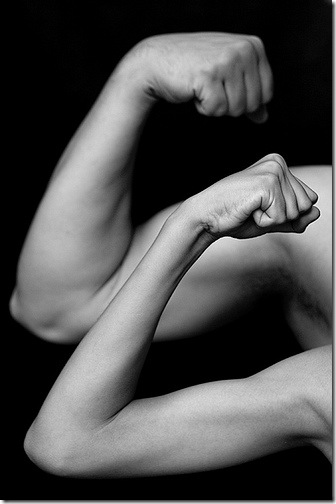 As a teaching professional I get approached by a wide variety of players looking to improve their game. I see it all, from 3.0 club-level hackers to high level college athletes. And while skill and ability levels vary greatly, everybody seems to be guilty of wanting to only practice the exact same thing: their weaknesses.
As a teaching professional I get approached by a wide variety of players looking to improve their game. I see it all, from 3.0 club-level hackers to high level college athletes. And while skill and ability levels vary greatly, everybody seems to be guilty of wanting to only practice the exact same thing: their weaknesses.
I’ll hear, “I really need to work on my backhand, it’s terrible” and “I always double-fault, I gotta work on my second serve today.” And while these statements about the state of their game aren’t necessarily wrong, I think there is an over-emphasis in the desire to work on their weaknesses. Improving what you struggle with is important, but you also need to improve upon what you already thrive on!
Practice What You Do Well
Practicing your strengths is more important than working on your flaws. I would say that you should devote at least half of your practice sessions to what you already do well. Lets say that you have a great forehand and a weak backhand. By all means get that backhand more consistent. But try and get a little more spin on your forehand. Maybe work on stepping up a hitting it with a little more pace. Try and take more balls on-the-rise with it. You already have a good forehand….now make it a really really good forehand.
It’s always good to look to the professionals for guidance. When you watch the greats play, how do they win? Agassi did with his punishing return and steady groundstrokes. Nadal with his great fitness and buggy-whip forehand. Do you think these two have devoted a ton of practice time on their volleys? Even in practice these guys didn‘t spend too much time inside the service box. They both know that they’re not going to match up with the Sampras’ and Federer’s in that department. But Andre knew that he would have to return well to compete with Pete. Rafael knows that his huge spinning forehand gives Roger trouble. These guys have some of the best strengths in history and they still looked to improve on them.
Practice Avoiding What You Don’t Do Well
OK, so your backhand is weak or your second serve is inconsistent. Just like an addiction, admitting this is half the battle. Now you need to work on ways to avoid hitting those shots. For example, practice your run-around forehand instead hitting your backhand. Improve your footwork and fitness so you have the ability to move around your backhand more often. After all, if you hit your better shot more often, you’re going to win more points. And don’t forget to work on your first serve. It sounds obvious, but you can avoid hitting your second serve by getting your first one in. Don’t go for the tempting ace. Work on hitting it with more spin and placement.
You Get The Idea…
You have to be willing to accept that your going to lose a few points here and there over the course of a match due to your weaknesses….but hopefully those misses are offset by what you do well. I especially suggest practicing your strengths in a practice session before an important match. Don’t frustrate yourself by working on what you struggle with the day before you play. Get your confidence up and practice you’re your stronger shots which you hopefully will be utilizing in your upcoming match. I personally found that this approach has helped my game a lot. And on that occasion when I did lose (albeit very rare I might add), I found that there was some consolation in knowing that I did lose playing my strengths.
So get off your computer, grab your sticks, and get back to the court!







